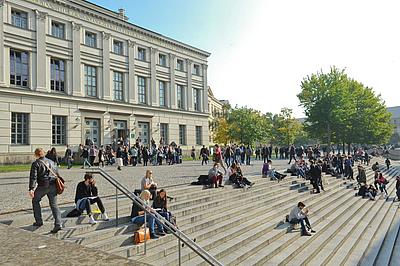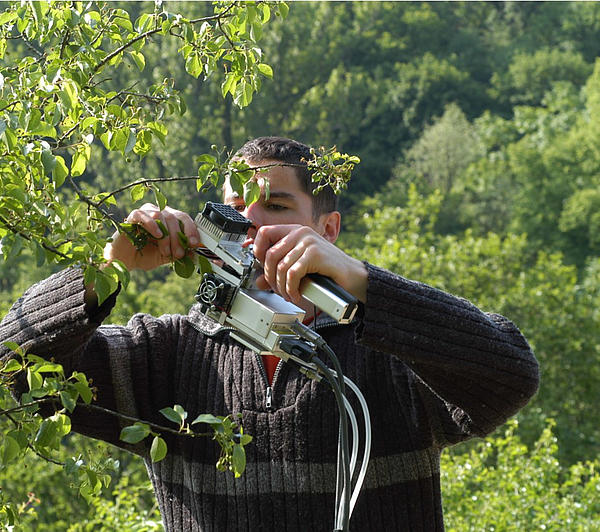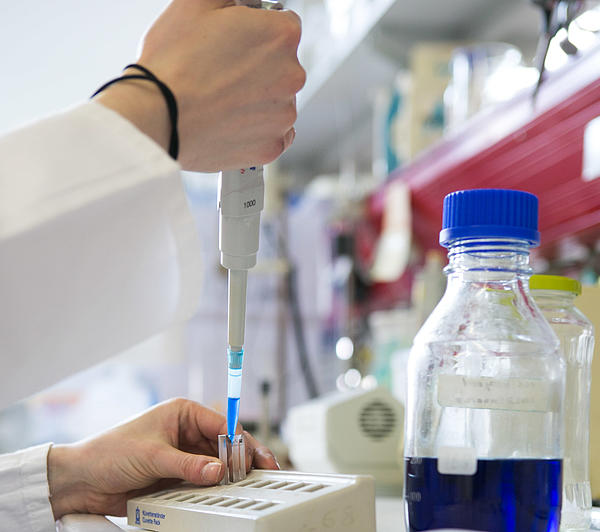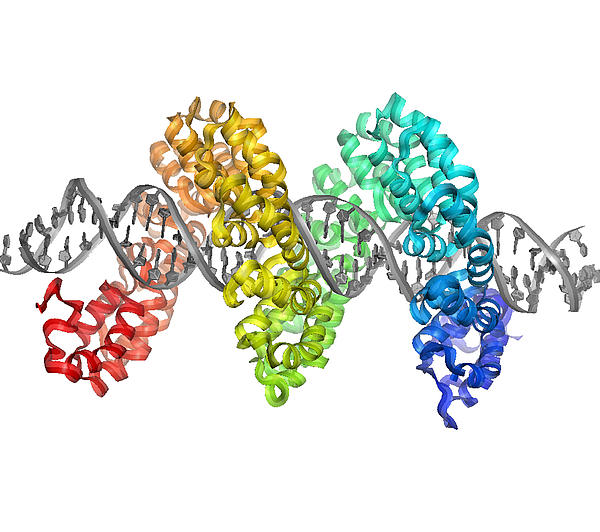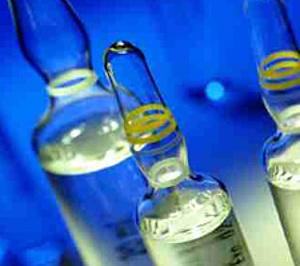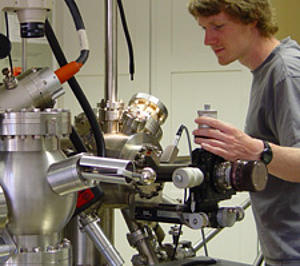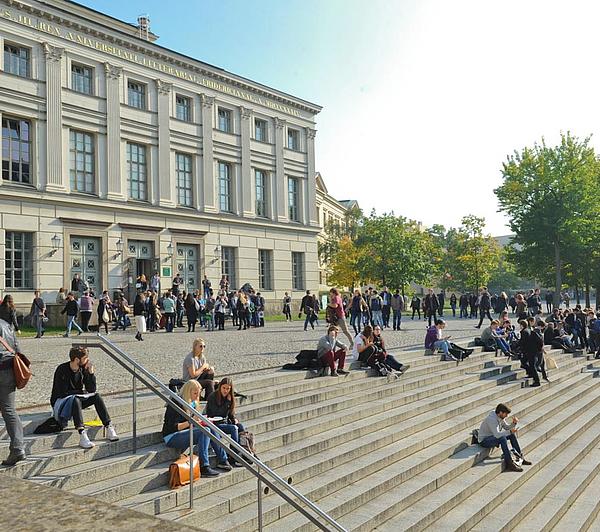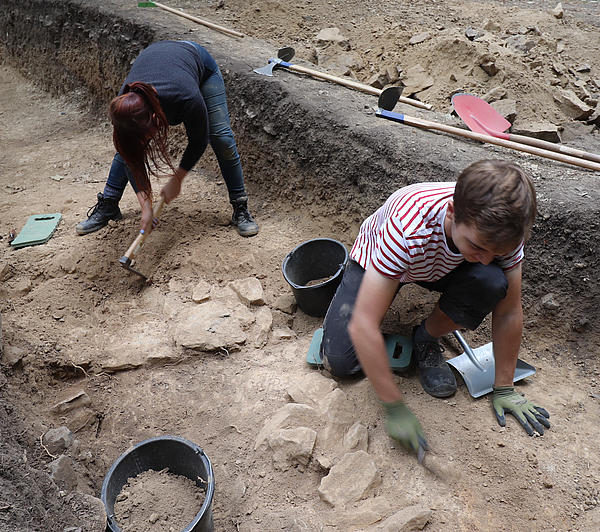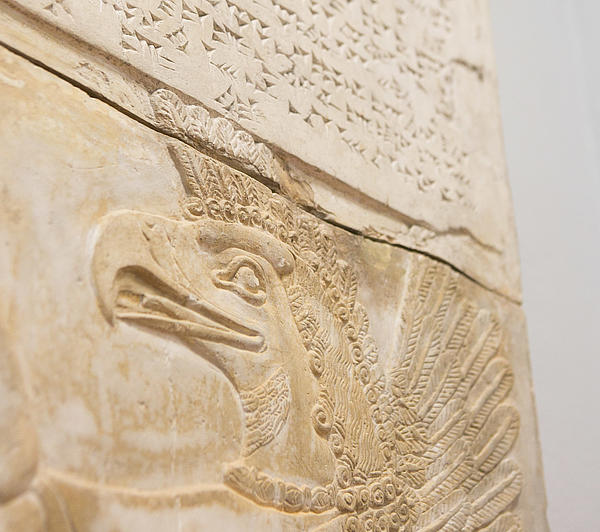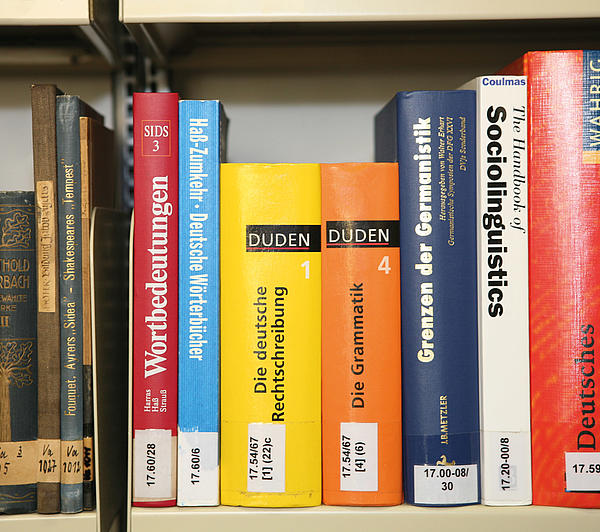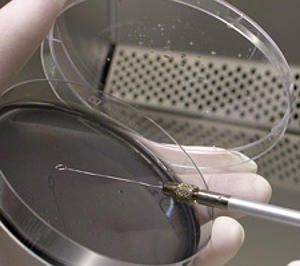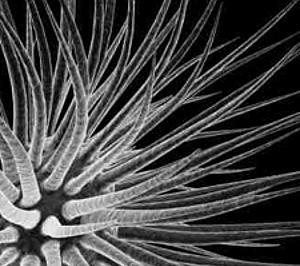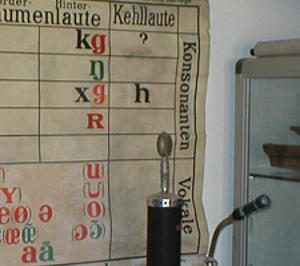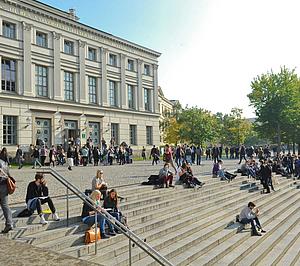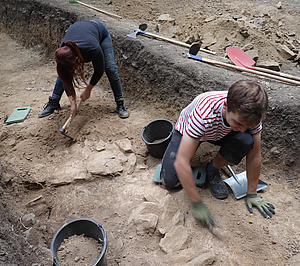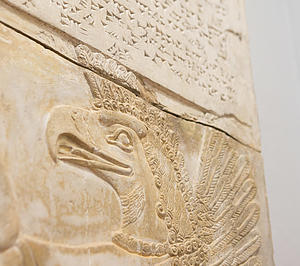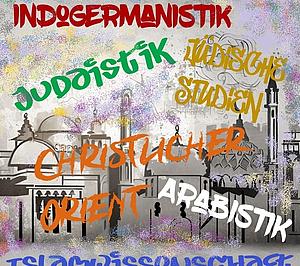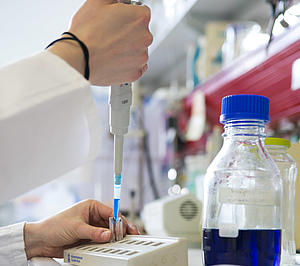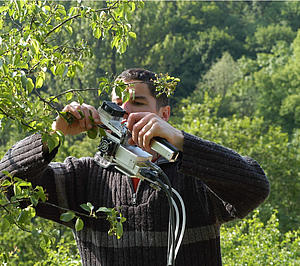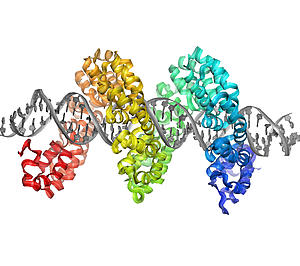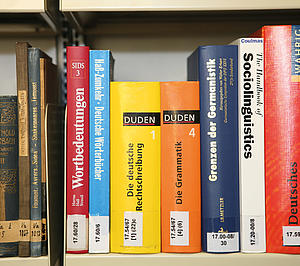Molecular and Cellular Biosciences
Komplett und maßgeschneidert
Von A wie Agrarwissenschaften bis Z wie Zahnmedizin - das Studienangebot an der Uni Halle ist riesig. Mehr als 240 Studienangebote gibt es insgesamt und mehr als die Hälfte davon haben keinen NC, stehen also zur freien Einschreibung zur Verfügung!
Aber das ist längst nicht alles! Sehr viele der angebotenen Studienfächer lassen sich miteinander kombinieren. So kannst du genau das studieren, was dich interessiert – und dir dein Studium „auf den Leib schneidern“.
Unsere Angebote für diese Studienrichtung:
Molecular and Cellular BiosciencesMaster-Studiengang
Allgemeine Informationen
| Studienabschluss | Master of Science (M.Sc.) |
|---|---|
| Umfang | 120 LP |
| Regelstudienzeit | 4 Semester |
| Studienbeginn | Wintersemester und Sommersemester |
| Studienform | Direktstudium, Vollzeitstudium, Internationaler Studiengang |
| Hauptunterrichtssprache | English |
| Zulassungsbeschränkung | zulassungsbeschränkt (Uni-NC) |
| Fachspezifische Zulassungsvoraussetzungen | ja (Details) |
| Fakultät | Naturwissenschaftliche Fakultät I - Biowissenschaften |
| Institut | Institut für Biologie |
| Akkreditierung | akkreditiert |
Charakteristik und Ziele
The international master’s programme MSc Molecular and Cellular Biosciences aims at providing a broad theoretical and methodological understanding of cellular functions at the molecular level, enabling students to acquire a comprehensive knowledge in one or more areas of molecular and cellular biology.
The programme aims to deepen the ability to work systematically and scientifically and to train logical-analytical thinking. Students acquire the skills to carry out scientific research work in the molecular biosciences largely independently. This enables them to recognise and structure tasks independently, to work on this basis and to gain knowledge, to work together with representatives of different disciplines in a collaborative and problem-oriented manner and to apply basic knowledge in a practical way.
In addition, the specialised skills acquired enable students not only to present the research results of molecular biosciences scientifically, but also to communicate them to political decision-makers, interest groups and the general public and to implement them in practice. The international character of scientific research, which is dominated by the English language, is taken into account by conducting the degree programme in English.
Berufsperspektiven
In this master's degree programme, graduates acquire the ability to fulfil future tasks in universities, research institutes, industry or administration through a scientific approach.
The MSc Molecular and Cellular Biosciences qualifies students for the following professional fields, among others:
- Basic research on all aspects of molecular biosciences
- subject-specific teaching tasks
- application-related planning and management tasks in biotechnological-pharmaceutical companies and public administration
- subject-specific advice to politicians, political parties and NGOs, e.g. on the risk assessment of genetically modified organisms (GMOs)
Akkreditierung
This study programme is accredited (details).
Studieninhalt
The programme covers all aspects relevant for the research and the solution of bioscience-related issues. The curriculum is organised in a way that students are able to graduate from the programme within the regular period of study of 4 semesters.
A: Compulsory modules (75 CP)
Module | CP | rec. sem. |
|---|---|---|
| Fundamentals in Molecular and Cellular Biosciences | 15 | 1 |
| Project study 'Molecular and Cellular Biosciences' | 15 | 3 |
| Research internship 'Molecular and Cellular Biosciences' | 15 | 3 |
| Research project module (Master's Thesis) 'Molecular and Cellular Biosciences' | 30 | 4 |
B: Project modules (Elective modules) (45 CP)
Three project modules (15 CP each) have to be successfully completed, at least two of them from the Institute of Biology's offer (B1).
| Module | CP | rec. sem. |
|---|---|---|
| B1: project modules offered by the Institute of Biology At least 30 CP must be obtained from the B1 elective modules on offer. | ||
| Project module Developmental Biology / Projektmodul Entwicklungsbiologie (MSc) | 15 | 1 or 2 |
| Project module Molecular Animal Physiology / Projektmodul Molekulare Tierphysiologie (MSc) | 15 | 1 or 2 |
| Project module Molecular Genetics of Root Nodulation Symbiosis / Projektmodul Molekulargenetik der Wurzelknöllchen-Symbiose (MSc) | 15 | 1 or 2 |
Project module Molecular Biology of Organelles / Projektmodul Molekularbiologie von Organellen | 15 | 1 or 2 |
Project module Molecular Cell Biology (MSc) | 15 | 1 or 2 |
| Project module Molecular Mechanisms in Developmental Genetics / Projektmodul Molekulare Mechanismen in der Entwicklungsgenetik (MSc) | 15 | 1 or 2 |
| Project module Molecular Microbiology / Projektmodul Molekulare Mikrobiologie (MSc) | 15 | 1 or 2 |
| Project module Molecular Physiology of Microorganisms / Molekulare Physiologie der Mikroorganismen (MSc) | 15 | 1 or 2 |
| Project module Molecular Phytopathology and Plant Immunity / Projektmodul Molekulare Phytopathologie und pflanzliche Immunität (MSc) | 15 | 1 or 2 |
Project module Plant Development and Stress Responses / Projektmodul Pflanzliche Entwicklung und Stressantworten | 15 | 1 or 2 |
| B2: project modules offered by other institutes A maximum of 15 CP can be obtained from the B2 elective modules on offer. | 15 | 1 or 2 |
| Projektmodul Molekulare Ernährungs- und Ertrags-physiologie der Pflanze / Project module Molecular Physiology of Plant Nutrition and Crop Yield | 15 | 1 or 2 |
| Projektmodul Nukleinsäurebiochemie | 15 | 1 or 2 |
| Projektmodul Pflanzenbiochemie | 15 | 1 or 2 |
| Projektmodul Zellbiochemie und Virologie | 15 | 1 or 2 |
The content, learning objectives, workload, requirements and prerequisites of specific modules are published in the module catalogue and in the study and examination regulations, respectively.
Zulassungsvoraussetzungen
Applicants for the MSc Molecular and Cellular Biosciences must
hold a bachelor's degree or equivalent degree in a bioscience-oriented study programme,
pass the programme-specific test and
- prove good knowledge of written and spoken English.
The bachelor's degree or equivalent degree must have been obtained in a bioscience-oriented or comparable degree programme in which knowledge totalling 55 credit points (CP) was acquired in at least four areas belonging to biochemistry, molecular biology, physiology, cell biology, genetics or microbiology.
In addition, applicants must pass an online test on the basic knowledge and skills that will be considered for admission to the international master's programme. Participation in the test is automatically registered and the test result is sent to the selection committee. The test contains questions covering the fields of biochemistry, molecular biology, physiology, cell biology, genetics and microbiology, each with equal weighting. The computer-based (online) test is conducted in English by two examiners using the answer-choice method and takes 30 minutes. To pass the exam, 35 per cent of the maximum score must be achieved. The test can be taken at any time during the application period. A passed test is valid for one year and cannot be repeated within this period. A failed test can be repeated at the earliest on the next test date.
The online test will be accessible from 15 May for the winter semester, and from 15 November for the summer semester. The test must be completed by the application deadline (see dates under “Application”).
You can access the online test here.
Further information on registration, dates and procedures is published on the website of the Institute of Biology.
Applicants must also prove their English language proficiency by submitting either TOEFL, IELTS, Cambridge Certificate, Unicert II, or an equivalent (inter)nationally recognised language certificate attesting upper B2level according to the Common European Framework of Reference for Languages (CEFR) with the following results:
- TOEFL iBT (min. 90/120),TOEFL CBT (min. 235/300), or TOEFL PBT (min. 580/677),
- IELTS (min. band 6.5),
- Cambridge Certificate (min. 173/230),
- UNIcert II,
equivalent (inter)nationally recognised language certificate with at least 75% of the maximum score achievable in the respective certificate.
However, proof of language proficiency is not required if the first degree was obtained in a study programme taught in English.
Basic knowledge of the fundamental scientific subjects of physics and maths are strongly recommended.
Decisions on compliance with the admission requirements are taken by a committee appointed by the Faculty Council.
If the study programme is subject to admission restrictions and the number of applications exceeds the number of available study places, the available study places are allocated according to the Study Place Allocation Regulations of the Federal State of Saxony-Anhalt (Studienplatzvergabeverordnung Sachsen-Anhalt) and the regulations governing the selection procedure for the master's degree programme Molecular and Cellular Biosciences (selection regulations, i.e. Auswahlordnung) in the currently valid version. In this process, 50% of all study places are awarded to international applicants who do not have the same status as German applicants.
This chapter consists of excerpts roughly translated into English. Only the study and examination regulations are legally binding.
Bewerbung/Einschreibung
The admission to the MSc Molecular and Cellular Biosciences is currently restricted (Uni-NC).
Applicants with a German bachelor’s degree (or equivalent) please apply via www.uni-halle.de/bewerben
- by 15 July for winter semester, and
by 15 January for summer semester
Applicants with a bachelor’s degree (or equivalent) from abroad please apply via www.uni-assist.de (> Information and Application procedure)
- by 15 June for winter semester, and
- by 15 December for summer semester
Required documents
The following documents must be submitted with the application for admission:
Proof of your bachelor's degree or equivalent (i.e., graduation certificate and transcripts). Important note: Applicants via uni-assist upload their certificates and transcripts both in original language and official translations, unless the originals are in English or in German.
Halle University does accept provisional graduation certificates, if your degree is scheduled after the application deadline. Please submit your transcripts indicating minimum 2/3 of your total credits to be passed / your senior student stage, accordingly. The final graduation certificate shall be submitted with enrolment, however, by no later than 31 January in the year following admission (winter semester) and 31 July in the year of admission (summer semester), respectively.
Participation in the test (see admission requirements) is automatically registered and the test result is sent to the selection committee. If proof of test participation is (additionally) issued, please submit it with the other documents listed.
Proof of English language proficiency (see admission requirements).
Proof of relevant knowledge acquired with former studies in at least four of the following areas: biochemistry, molecular biology, physiology, cell biology, genetics and/or microbiology (see admission requirements) (Please provide additional proof if it is not reflected in your graduation certificate and/or course and grade overview).
Proof of relevant knowledge acquired with former studies in the following areas (Please provide additional proof if it is not reflected in your graduation certificate and/or course and grade overview):
- Basic courses in botany, genetics, microbiology, zoology, chemistry, biochemistry, molecular biology and cell biology
- Thesis: Relevant topic in life sciences (evidence of (experimental) work in molecular biology, if applicable).
Relevant knowledge will be considered and awarded with ranking points as part of the admission procedure. For detailed information on the selection procedure, please see the selection regulations.
Fulfilment of the admission requirements does not constitute a claim to a study place for this programme.
This chapter consists of excerpts roughly translated into English. Only the study and examination regulations are legally binding.
Information for international applicants
For any questions regarding application and admission - except eligibility - please see website or contact the Student Registration Office - International Students Section.
The master's programme promotes permeability between different national and international university education systems and thus further increases the attractiveness of studying biosciences at Halle University.

